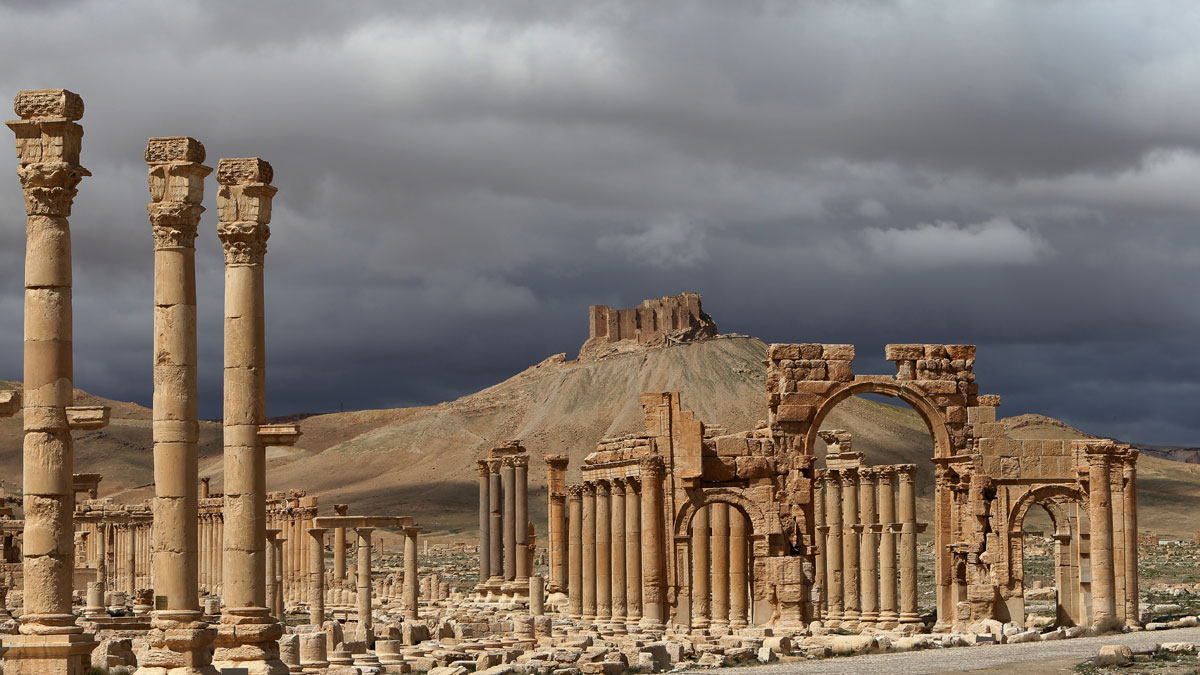Islamic State retakes Palmyra in Syria
Defeat raises questions about the ability of regime to hold on to territory

A free daily email with the biggest news stories of the day – and the best features from TheWeek.com
You are now subscribed
Your newsletter sign-up was successful
Islamic State militants have retaken the historic Syrian town of Palmyra, despite a series of Russian air strikes that reportedly killed 300 fighters.
The news was confirmed by the UK-based Syrian Observatory for Human Rights after IS-affiliated Amaq news agency broadcast claims of a victory against Syrian forces.
Losing the city to IS militans is "an embarrassing setback for thousands of Syrian government troops and their Russian allies defending the area", the Wall Street Journal says.
The Week
Escape your echo chamber. Get the facts behind the news, plus analysis from multiple perspectives.

Sign up for The Week's Free Newsletters
From our morning news briefing to a weekly Good News Newsletter, get the best of The Week delivered directly to your inbox.
From our morning news briefing to a weekly Good News Newsletter, get the best of The Week delivered directly to your inbox.
It also "raises questions about the ability of the Syrian military, worn down after years of fighting, to hold territory even with the backing of its Russian allies", The Guardian says.
IS first captured Palmyra in May 2015 and held the town for ten months, before being driven out by Syrian troops in March this year.
During that time, militants destroyed a number of historic Roman buildings in the city and beheaded Khaled al-Asaad, Palmyra's long-serving leading archaeologist.
Maamoun Abdulkarim, Syria's director of antiquities, fears IS will be "more vengeful" this time around and has called on the international community to help protect the city's historic architecture.
A free daily email with the biggest news stories of the day – and the best features from TheWeek.com
-
 How to Get to Heaven from Belfast: a ‘highly entertaining ride’
How to Get to Heaven from Belfast: a ‘highly entertaining ride’The Week Recommends Mystery-comedy from the creator of Derry Girls should be ‘your new binge-watch’
-
 The 8 best TV shows of the 1960s
The 8 best TV shows of the 1960sThe standout shows of this decade take viewers from outer space to the Wild West
-
 Microdramas are booming
Microdramas are boomingUnder the radar Scroll to watch a whole movie
-
 Epstein files topple law CEO, roil UK government
Epstein files topple law CEO, roil UK governmentSpeed Read Peter Mandelson, Britain’s former ambassador to the US, is caught up in the scandal
-
 Iran and US prepare to meet after skirmishes
Iran and US prepare to meet after skirmishesSpeed Read The incident comes amid heightened tensions in the Middle East
-
 Israel retrieves final hostage’s body from Gaza
Israel retrieves final hostage’s body from GazaSpeed Read The 24-year-old police officer was killed during the initial Hamas attack
-
 China’s Xi targets top general in growing purge
China’s Xi targets top general in growing purgeSpeed Read Zhang Youxia is being investigated over ‘grave violations’ of the law
-
 Panama and Canada are negotiating over a crucial copper mine
Panama and Canada are negotiating over a crucial copper mineIn the Spotlight Panama is set to make a final decision on the mine this summer
-
 Why Greenland’s natural resources are nearly impossible to mine
Why Greenland’s natural resources are nearly impossible to mineThe Explainer The country’s natural landscape makes the task extremely difficult
-
 Iran cuts internet as protests escalate
Iran cuts internet as protests escalateSpeed Reada Government buildings across the country have been set on fire
-
 US nabs ‘shadow’ tanker claimed by Russia
US nabs ‘shadow’ tanker claimed by RussiaSpeed Read The ship was one of two vessels seized by the US military